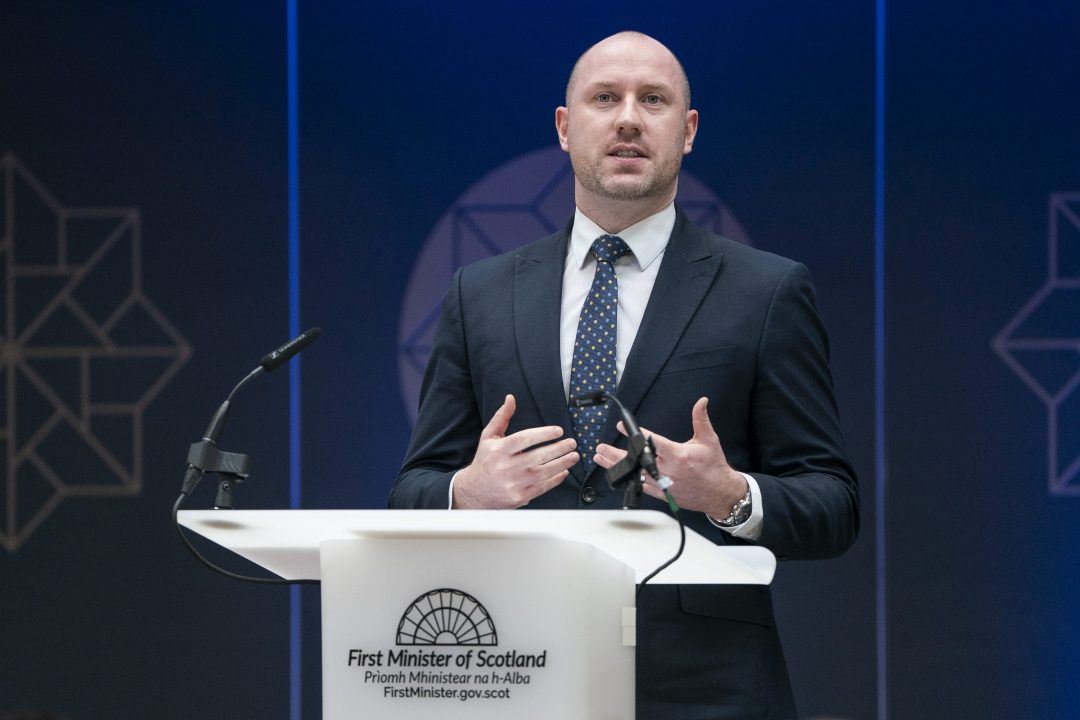Scotland’s health secretary will abstain in the initial vote on new proposals to introduce assisted dying, he has announced.
The Assisted Dying for Terminally Ill Adults (Scotland) Bill, proposed by Scottish Lib Dem MSP Liam McArthur, will go before MSPs for the first time on Tuesday, with them asked to back the general principles of the legislation.
Health secretary Neil Gray will speak for the Government during the debate and will be the lead minister during amendments at stages two and three, and has therefore said he will not support or oppose the Bill on Tuesday.
“Tomorrow, members of the Scottish Parliament will have a profound choice to make, informed by a very strong and impartial committee report,” the health secretary said in a statement on Monday.
“The Scottish Government, SNP, and every party, have not taken a position on the Bill and the vote will be one of conscience.
“During the debate tomorrow I will be the minister responsible for speaking on the Bill, and if it passes this first stage, will be the lead for the Government on amendments.”
He added: “I have thought hard about how to vote, reflecting my own conscience, and also what I see as being my responsibility as lead minister.
“I have taken the decision to abstain at this stage to reflect the Government’s neutral position and so that I am able to approach any amending stage in a demonstrably objective way.”
The Bill is the third attempt made by MSPs to change the law, with previous moves by the late Margo MacDonald and Scottish Green co-leader Patrick Harvie failing to pass, while former Lib Dem MSP Jeremy Purvis did not receive enough support to introduce a similar Bill in 2004.
If passed, the legislation would allow terminally ill Scots to take steps to end their own lives, but the Bill has sparked heated debate, with detractors suggesting it could lead to people feeling pressured to end their life.
Over the weekend, deputy first minister Kate Forbes announced she would not back the Bill at stage one, joining First Minister John Swinney, former first minister Humza Yousaf and Scottish Labour leader Anas Sarwar in opposition to the changes.
Speaking on BBC Radio Scotland on Monday, Forbes said it would be “impossible” to provide the necessary safeguards to ensure patients were not pressured into ending their lives.
“I think the people that are feeling the most concern and trepidation going into this week are disabled people, people who fear that it takes us down a road where, inevitably, across the world, you have seen those arbitrary lines shift,” the Deputy First Minister said.
She went on: “Canada legalised euthanasia in 2016, but it’s already scrapped the requirement for a person to be terminally ill and is set to extend that to those with mental illness.
“So, there are people that are really worried going into this week about what it will mean for them, and I don’t think any amount of legal drafting can prevent people feeling pressured to die, and that could be because of a lack of wider support, or because they feel like a burden on others, or just because that is now an option that has to be presented as they receive care and support.
“It’s for those reasons that I will not be able to vote for the Bill, and I sincerely hope that, as a country, we don’t get to a position where the most vulnerable in society feel like they are a burden.”
Despite the high-profile MSPs in opposition to the move, McArthur said he was “confident” enough support had been garnered to move the Bill to the next stage.
He said: “The conversations I have had over the past four years with colleagues now suggests there is more of a willingness to look for reasons to support rather than excuses to oppose.
“There are many colleagues who come at this issue with their own personal stories of losing a family member or a close friend to a bad death, therefore they view this issue through that prism, they recognise that the current ban on assisted dying is leading to too many instances where people are at the end of life with horrendous choices.”
Follow STV News on WhatsApp
Scan the QR code on your mobile device for all the latest news from around the country


 PA Media
PA Media

























